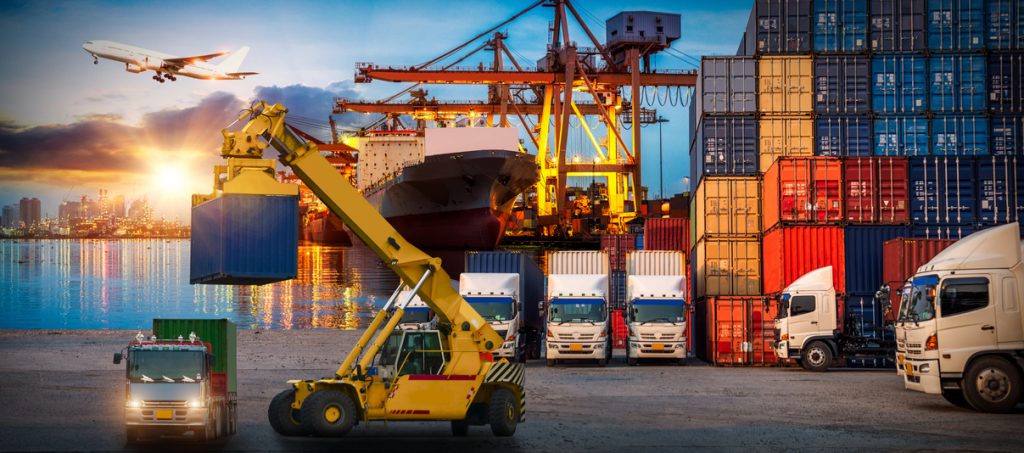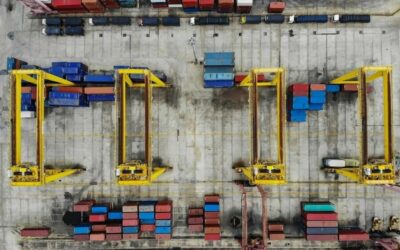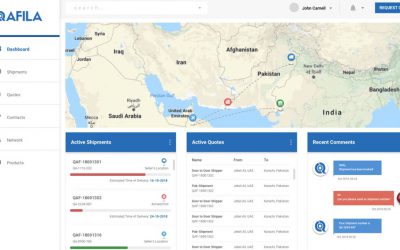Freight Forwarders: A Crucial Link in Logistics Communications
Supply chain logistics have come a long way from the siloed processes of the past, as companies have started to take a holistic view of the supply chain and its independent links. However, many organizations are still missing a vital component in their logistics strategy: the transportation of shipments. Without a clearly defined, artfully-built transportation plan, the entire supply chain remains at risk of delays, errors, and unnecessary expense.
Modern-day freight forwarders fill the transportation gap in a unique way, adding their specialized expertise and efficiency to create value and reduce cost. They coordinate the transportation of goods via a wide range of carriers, including road, railway, air, and ocean freight. Don’t make the mistake of thinking that freight forwarding companies are simply another cog in an already-full wheel. The right freight forwarder has the skills and expertise that is necessary to streamline logistics communications across the supply chain.
Table of Contents
Professional freight forwarders hold the right certifications
Experienced freight forwarding companies are familiar with and adhere to ISO 9001 certification standards. These standards demonstrate a commitment to continuous process improvement, strong leadership, a strategic approach to risk management, and the ability to integrate with other systems within the supply chain.
Freight forwarders should also hold an Authorized Economic Operator (AEO) certification to prove their legitimacy as a global trade facilitator. AEO standards show the ability to operate within EU standards and regulations and prove reliability and dedication to security and risk mitigation.
If your organization transports or receives dangerous goods, be sure that you work with a freight forwarding company that holds a dangerous goods certificate. In doing so, you will safely avoid the fines and penalties for improper handling.
In addition, freight forwarders often hold various cargo security certifications for specific government agencies like the Department of Homeland Security and the Transportation Safety Administration.
Logistics communications are complicated. A professional freight forwarding organization has the certifications and training needed to manage that complexity.
They can operate globally
Global organizations must consider regulations and compliance procedures for many different geographies. Freight forwarders are an invaluable link in the global supply chain. They have established agents and vendor networks in many different locations. By maintaining standards for each agency, regardless of location, professional freight forwarding companies protect against compliance violations and communications delays caused by language or cultural barriers.
Global freight forwarding agents are also familiar with custom’s regulations for unique geographies as well as insurance requirements and political or economic issues that may create a gap in logistics communications. Because of their broad network of agents, forwarders can manage potential delays (whether anticipated or not) and workaround ways to prevent delays and added expense.
They employ the right technology
Without the right tracking technology, the supply chain operates blindly. Freight forwarding agents have the necessary systems in place to provide vendors and customers access to real-time data about shipments, including location and delays.
Many forwarders are beginning to employ automation and artificial intelligence to track things like inclement weather and other disruptions while there is still time to re-route a shipment. By automating processes that previously required a great deal of time and attention from personnel, freight forwarding agents can focus on higher-priority service issues.
They provide high-touch customer service
Agility is key to successful logistics communications and supply chain management. Freight forwarders have the networks and processes in place to quickly adapt to the needs of their customers.
Although automation is emerging as a new technology for freight forwarders, it isn’t replacing the concierge-level customer service experience that sets freight forwarding agents apart as an invaluable link in the supply chain. When a customer is experiencing an issue with a shipment, they do not want to talk to an automated system. They want the personalized, knowledgeable service that the modern-day freight forwarders are uniquely positioned to provide.
They understand the complexity of logistics communications
Not only are freight forwarders familiar with custom’s regulations for each country in which they operate, but they also understand the costs and shipping terms and conditions for each geography. The supply chain is dependent on many vendors– each with their own processes and systems. An experienced freight forwarding company isn’t limited by the disparity of systems and processes, but instead, employs its global network to pull the communications chain together, minimizing delays and expediting shipments.
Bottom-line
There are many types of freight forwarding companies that offer specialized services. What they all have in common is that they act as an intermediary between the complex, moving parts within the supply chain to move shipments quickly, efficiently and with flexibility when issues arise. By employing the services of a freight forwarder, logistics communications can be made more transparent and complete.






